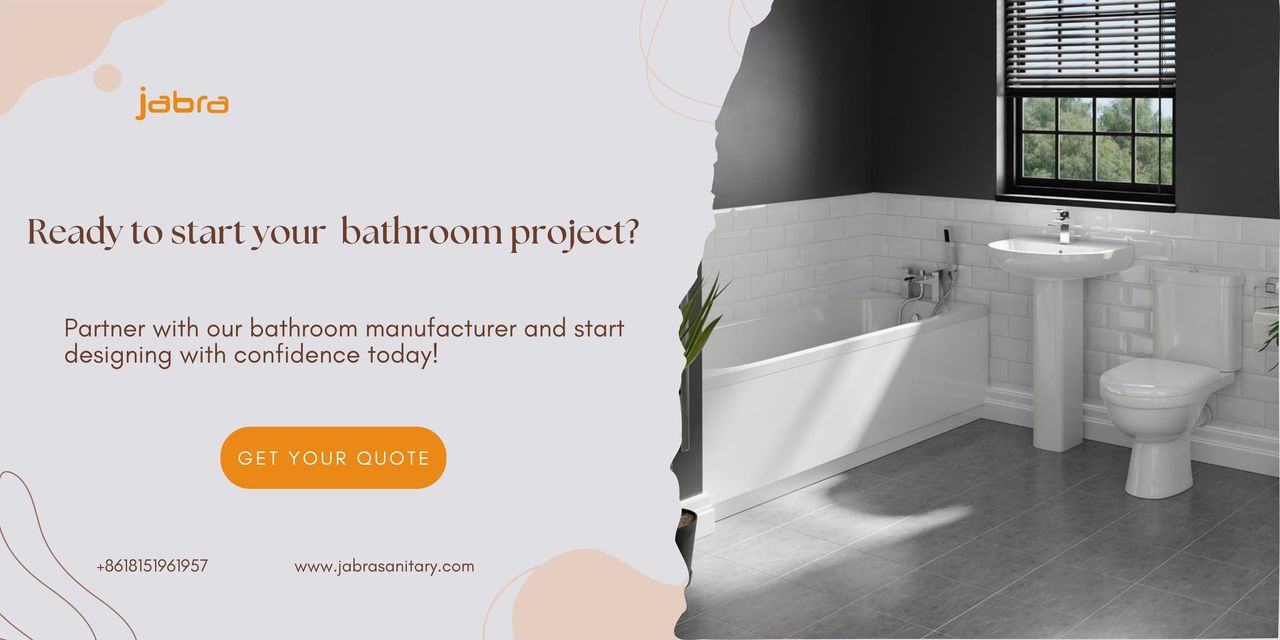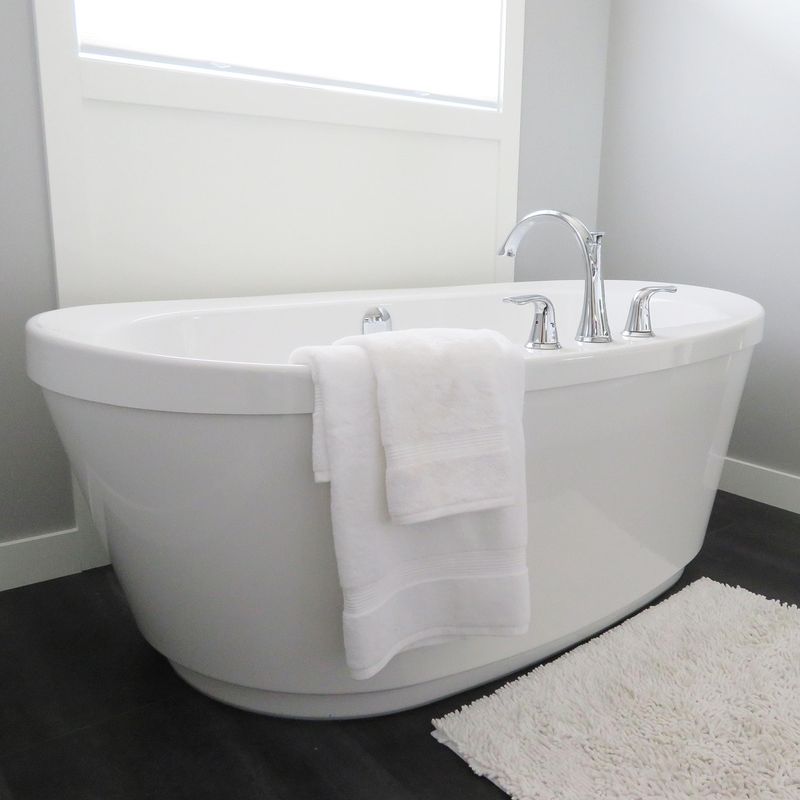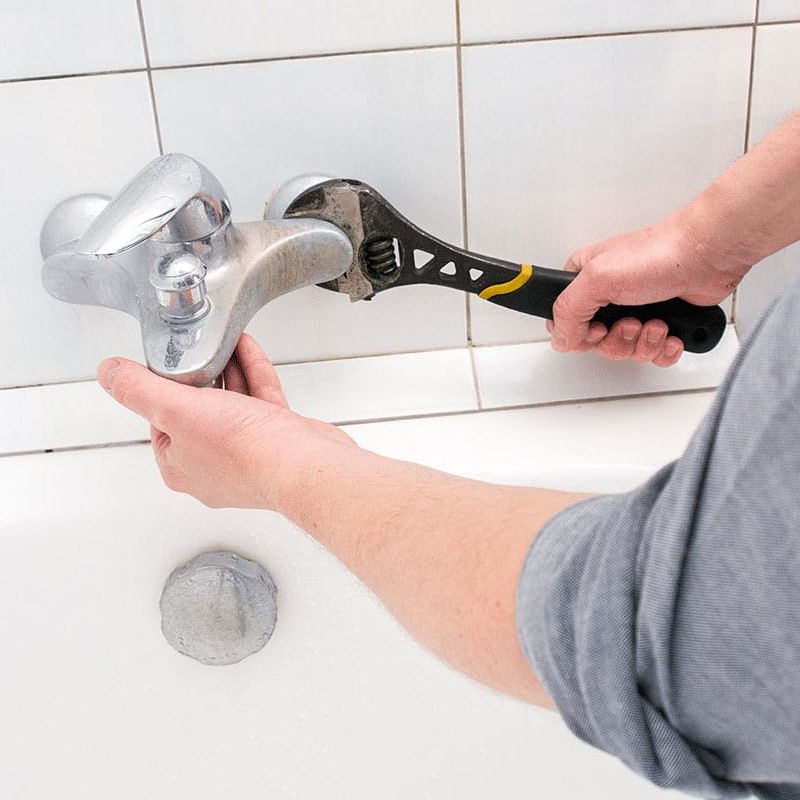 English
English
Jabra Sanitary is a sanitaryware supplier offering toilets, sinks, faucets, bathtubs, etc., at competitive prices. If you're a distributor, wholesaler, or project contractor, get a quote today!
 $23.9 Limited-time Offer
$23.9 Limited-time Offer Consignment Policy
Consignment Policy 20 Years of Experience
20 Years of Experience
Have you ever noticed your bathroom faucet leaking or looking outdated? It's a common problem that many homeowners face! Leaky faucets waste more than 3,000 gallons of water annually. Replacing a bathroom faucet might sound like a big job, but we're here to tell you it doesn't have to be.
How much does it cost to replace a bathroom faucet? In this article, we'll break down everything you need to know about the bathroom faucet replacement costs involved, from the price of a shiny new faucet to what you might pay someone to install it.
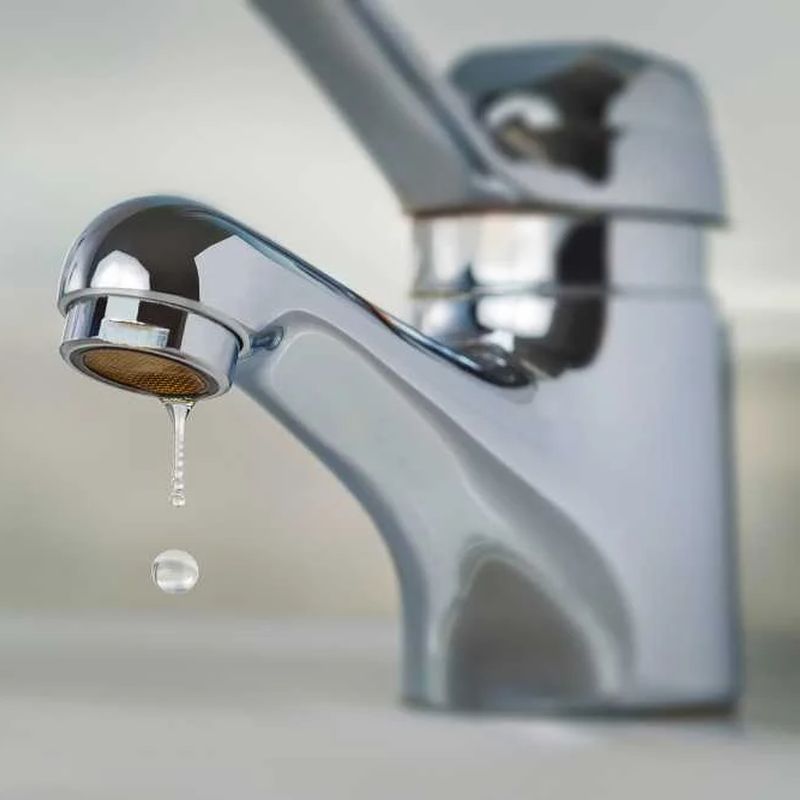
Table of Contents
What's the Average Cost to Replace a Bathroom Faucet?
Cost of Replacing a Bathroom Faucet by Type
Bathroom Faucet Replacement Cost by Material
Cost To Replace a Bathroom Faucet by Finish
Regional Cost Variations to Replace a Bathroom Faucet
Bathroom Faucet Prices by Type and Brand
Labor Cost To Replace a Bathroom Faucet
Hidden Costs to Watch Out For
Budgeting and Planning for Bathroom Faucet Replacement
DIY vs. Professional Replacement: Which Saves You More?
Is it Cheaper to Repair a Bathroom Faucet than Replacing?
FAQs
Conclusion: Key Takeaways for Bathroom Faucet Replacement Costs
What's the Average Cost to Replace a Bathroom Faucet?
The average cost to replace a bathroom faucet falls between $170 and $360, with labor costs ranging from $130 to $350 and the faucet itself costing $20 to $250.
But what's included in that price? Let's break it down into two big pieces: the cost of the new faucet and the labor to install it.
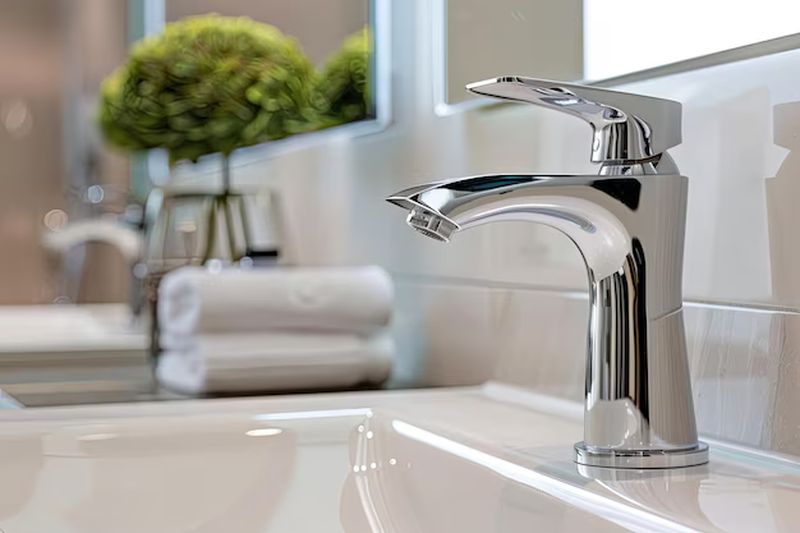
The Faucet Itself
The price of a new bathroom faucet depends on what you're after. A basic, reliable model can run as low as $70, perfect if you just need something functional.
Want to upgrade to a chic, modern look or maybe a touchless smart faucet? You could be looking at $250 or more. Thankfully, there's a wide range in between, so you can pick a faucet that matches both your taste and your wallet.
Labor Costs
Now, let's talk installation. Hiring a pro plumber—which we often recommend for a smooth, leak-free result—typically costs between $130 and $350. This typically includes cleanup as part of the service. Why the range? It depends on the job.
If your plumbing setup is straightforward, you'll likely stay on the lower end. But if we're dealing with tight spaces, rusty old pipes, or a tricky faucet design, the labor cost to replace a bathroom faucet could creep up toward the higher end.
Cost of Replacing a Bathroom Faucet by Type
When it comes to replacing your bathroom faucet, the type you choose can significantly impact the overall cost of faucet replacement. From simple single-handle models to high-tech smart faucets, each type comes with its price tag.
Single-handle Faucets
Single-handle faucets are a popular choice for their simplicity and sleek design. They typically range from $50 to $200, making them an affordable option for many homeowners.
With just one lever to control both temperature and water flow, they're easy to use and install, which can also help keep labor costs down.
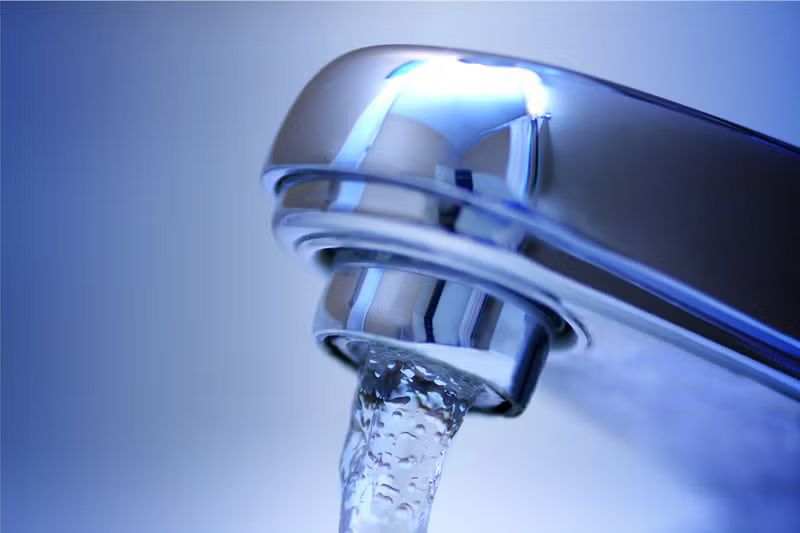
Double-handle Faucets
Double-handle faucets offer a classic look with separate controls for hot and cold water. They usually cost between $100 and $300, depending on the brand and design.
While they might be a bit more expensive than single-handle options, they add a timeless touch to your bathroom and are still relatively straightforward to replace.
Wall-mounted Faucets
Wall-mounted faucets provide a distinctive look but may require more complex installation, especially if you're retrofitting them into an existing setup. They typically cost between $200 and $800, with additional labor costs to replace a bathroom faucet.
The extra price to install a bathroom faucet comes from the need to adjust plumbing behind the wall, but the unique style can be worth it for the right bathroom design.
Deck-mounted Faucets
Deck-mounted faucets are the most common type, sitting directly on the sink or countertop. They offer a wide range of styles and prices, usually costing between $70 and $250. Their versatility makes them a flexible choice for any budget. Since they're so common, installation is typically straightforward and affordable.
Smart Faucets
Smart faucets bring cutting-edge technology to your bathroom with features like touchless activation and precise temperature control. They can cost anywhere from $200 to $1,200, depending on the features you choose. While they're the priciest option, their convenience, and modern appeal make them a great choice for tech-savvy homeowners looking to upgrade their space.
Bathroom Faucet Replacement Cost by Material
When it's time to replace your bathroom faucet, the material it's made from can make a big difference in both the cost to replace a bathroom faucet and how long it will last. The most common materials for bathroom faucets are ceramic, zinc, and stainless steel.
Each material comes with its own price range and benefits, so let's dive into the details to help you decide which one fits your budget and needs.
Ceramic Components
Ceramic is often found inside faucets, particularly in the valves that control water flow. Known as ceramic disc valves, these components are prized for their durability and ability to prevent leaks. Faucets featuring ceramic valves typically range from $70 to $200.
While the outer body of the faucet might be metal, the ceramic inside boosts performance and longevity, offering great value for a modest price.
Zinc Faucets
Zinc is a go-to material for mid-range faucets, striking a balance between affordability and quality. These faucets usually cost between $100 and $250. Often coated with finishes like chrome or nickel, zinc faucets resist corrosion and add a polished look to your bathroom.
If you want a dependable faucet without spending too much, zinc is a practical and popular choice.
Stainless Steel Faucets
Stainless steel stands out as a premium material, loved for its strength and sleek appearance. Faucets made from stainless steel generally range from $150 to $400, with high-end designs sometimes costing more. This material resists rust, corrosion, and tarnish, making it ideal for busy bathrooms or humid environments.
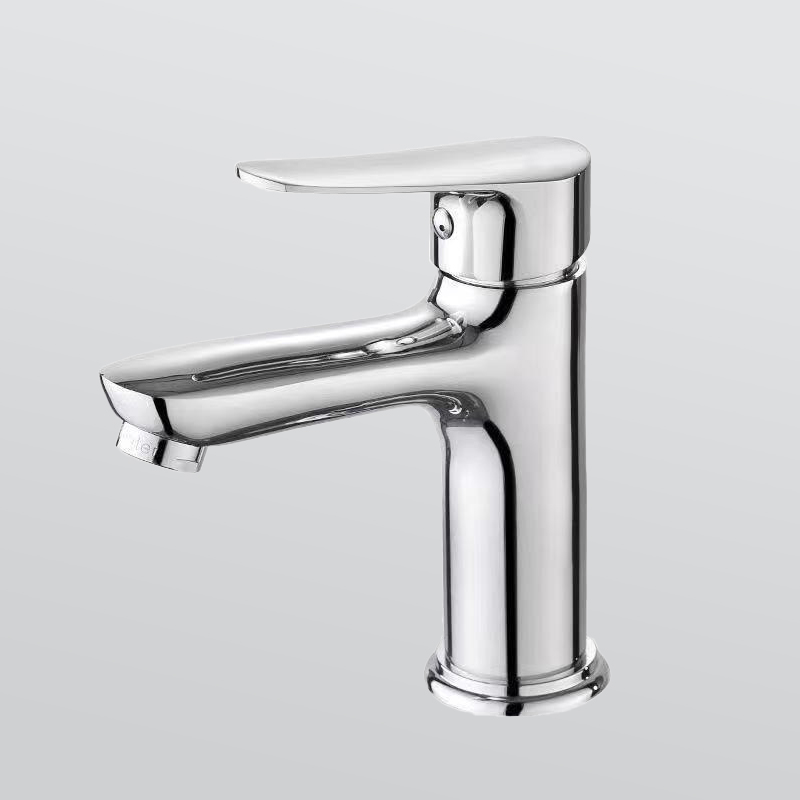 Ads
Ads
Single Hole Bathroom Faucet
The modern single hole bathroom faucet EF8214 combines style, durability, and convenience, this modern bathroom faucet one hole features a solid brass construction with a total weight of 576g.
If you're looking for a long-lasting faucet that requires little upkeep, stainless steel is worth the investment.
To simplify your decision, here's a comparison table:
Material |
Cost Range |
Notes |
|---|---|---|
Ceramic Components |
$70 - $200 |
Improve faucet lifespan and performance |
Zinc |
$100 - $250 |
Affordable, often coated for extra style |
Stainless Steel |
$150 - $400+ |
Rust-resistant and low-maintenance |
Cost To Replace a Bathroom Faucet by Finish
Different finishes, like chrome, brushed nickel, matte black, rubbed bronze, and gold or brass, come with their price tags. Here's what you can expect to spend on each finish, along with a quick description of what makes them special.
Chrome: $70 to $150
Chrome faucets have a shiny, silver, mirror-like surface that's both classic and budget-friendly. They're easy to clean, but water spots might show up if you don't wipe them down often.
Brushed Nickel: $100 to $200
Brushed nickel offers a soft, matte finish that hides fingerprints and watermarks well. It's a popular pick for a sleek, modern bathroom vibe.
Matte Black: $150 to $250
Matte black faucets are bold and trendy, with a flat, non-shiny surface that stands out. They're great for a modern, stylish look.
Rubbed Bronze: $180 to $300
Rubbed bronze, sometimes called oil-rubbed bronze, has a dark, warm tone with subtle highlights. It's ideal if you want a vintage or rustic feel in your bathroom.
Gold/Brass: $200 to $400+
Gold or brass finishes add a touch of luxury. They can be bright and polished or muted and antique, depending on your taste, making them a pricier but glamorous option.
Regional Cost Variations to Replace a Bathroom Faucet
When it's time to replace your bathroom faucet, the cost can vary depending on where you live. Labor rates for plumbers differ from one region to another, which means the total price to install a bathroom faucet can fluctuate based on your location.
Understanding these regional differences can help you budget more accurately and avoid surprises when the bill arrives.
While it's challenging to pinpoint the exact labor costs to replace a bathroom faucet for every region, here's a general idea of how labor rates might vary:
- Urban Areas: In large cities like New York or San Francisco, labor costs for faucet installation can range from $200 to $400 or more.
- Suburban Areas: In suburban regions, you might pay between $150 and $300 for labor.
- Rural Areas:In less populated areas, labor costs could be as low as $100 to $250.
Bathroom Faucet Prices by Type and Brand
When it's time to replace your bathroom faucet, the brand you pick can make a big difference in both price and quality.
Moen
Moen is a household name, loved for its dependable and stylish faucets. Here's what you can expect to pay for their different types:
- Single-handle Faucets:$100 - $300
- Double-handle Faucets:$150 - $400
- SmartFaucets: $300 - $800
Grohe
Grohe stands out with its cutting-edge designs and top-notch quality. Their prices reflect that premium feel:
- Single-handle Faucets:$150 - $400
- Double-handle Faucets:$200 - $500
- Smart Faucets: $400 - $900
Jabra Sanitary
At Jabra Sanitary, we focus on delivering high-quality faucets at prices that won't break the bank. Here's a look at our offerings:
- Single-handle Faucets:$80 - $250
- Double-handle Faucets:$120 - $350
- Smart Faucets:$300 - $700
Here's a handy table to compare the average price ranges across these brands:
Faucet Type |
Moen |
Grohe |
Jabra Sanitary |
Warranty |
|---|---|---|---|---|
Single-handle |
$100 - $300 |
$150 - $400 |
$80 - $250 |
5-year |
Double-handle |
$150 - $400 |
$200 - $500 |
$120 - $350 |
5-year |
Smart Faucets |
$300 - $800 |
$400 - $900 |
$300 - $700 |
10-year |
As you can see, Jabra Sanitary offers some of the best deals, especially on smart faucets, where you get advanced features without the hefty price tag.
Labor Cost To Replace a Bathroom Faucet
When replacing your bathroom faucet, one of the biggest expenses you'll face is how much a plumber charges to replace a faucet. On average, labor costs to replace a bathroom faucet range from $130 to $400. This depends on where you live, how tricky the installation is, and who you hire for the job.
Things like rusty pipes or tight spaces can bump up the price, but we'll help you understand what to expect from popular options like Home Depot, Lowe's, and our team at Jabra Sanitary.
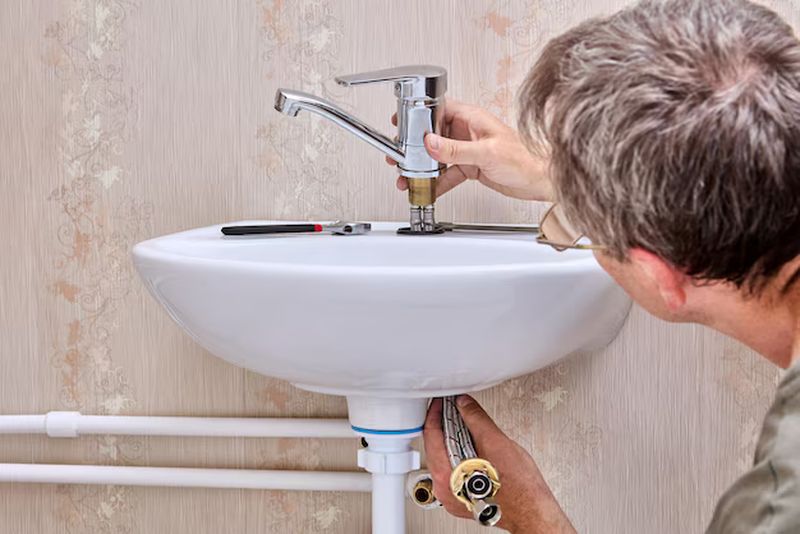
At Home Depot, faucet installation services start at around $119. That's a friendly base price, but it can climb depending on your location or the job's complexity.
For instance, in some areas like California, we've seen quotes as high as $179. Their service includes removing your old faucet and installing the new one, plus a 1-year labor warranty for extra reassurance. Keep in mind that if your plumbing needs tweaks, those extras might add to the bill.
Lowe's offers an even lower starting point, with installation costs beginning at about $92. Like Home Depot, this can vary by region, and more complicated setups will cost more. Their package also covers removing and disposing of your old faucet, installing the new one, and comes with a 1-year labor warranty.
Now, Jabra Sanitary prides itself on offering competitive labor rates, typically between $100 and $300, tailored to your specific project. Whether it's a simple swap or a trickier install, our skilled technicians get it done right.
We don't just stop at removal and installation—we check your plumbing to catch any hidden issues and back our work with a satisfaction guarantee.
Pro Tip: Prices may vary based on contractor availability.
Hidden Costs to Watch Out For
When you're planning to replace your bathroom faucet, it's easy to focus on the obvious expenses—like the faucet itself and the labor to install it. But there are often unexpected fees that can sneak up on you if you're not prepared.
Old Plumbing Repairs
One of the biggest hidden costs comes from old plumbing repairs. If your bathroom has older plumbing, you might run into issues like corroded pipes or outdated connections that need fixing before the new faucet can be installed.
Valve Replacement
Another potential expense is valve replacement. The valves under your sink control the water flow to your faucet, and if they're old or damaged, they might need to be replaced at the same time. This is especially common in older homes where the valves haven't been updated in years.
Replacing a valve can cost between $75 and $150 per valve, and since most sinks have two (one for hot and one for cold), this could add up to $150 to $300 to your project. Have your plumber check the valves during the installation to avoid future leaks or issues.
Sink Replacement
Sometimes, replacing the faucet leads to a bigger decision: replacing the entire sink. If your sink is old, chipped, or doesn't match your new faucet, you might be tempted to upgrade it too. While this can give your bathroom a fresh look, sink replacement can significantly increase your costs.
A new bathroom sink typically costs between $100 and $500, and installation can add another $200 to $400. If you're thinking about this, make sure to factor it into your budget early on.
Replacing Wall-Mounted Faucets
If you have a wall-mounted faucet, you might face higher labor costs to replace a bathroom faucet. These faucets are installed directly into the wall, which can make the replacement more complicated than a standard deck-mounted faucet. Accessing the plumbing behind the wall often requires more time and effort, which can increase labor costs by $50 to $150.
Additional Fixtures
When replacing your faucet, you might want to add some extra features to enhance your bathroom's functionality and style. These additional fixtures can include:
- Matching drain assemblies: To ensure your drain matches your new faucet, this might cost $20 to $50.
- Soap dispensers: A built-in soap dispenser can be convenient and typically costs $50 to $100
- Temperature control features: Some modern faucets come with temperature control, which can add $100 to $200to the faucet's price.
- Lighting: If you're upgrading to a smart faucet with LED lights, expect to pay an extra $50 to $150.
Permit Fees
In some areas, major plumbing changes—like replacing a faucet that involves altering the plumbing system—might require a permit. While this isn't common for simple faucet replacements, it's something to check, especially if you're doing other renovations at the same time.
Permit fees vary by location but typically range from $50 to $200. Contact your local building department to see if a permit is needed for your project.
Budgeting and Planning for Bathroom Faucet Replacement
Replacing a bathroom faucet is an exciting upgrade, but it's important to plan to keep bathroom faucet replacement costs under control. Let's dive into how you can plan for a smooth and cost-effective faucet replacement!
Buy Your Faucet (Avoid Markup from Contractors)
One of the easiest ways to save is by purchasing your faucet instead of letting the contractor supply it. Contractors often add a markup of 20% to 30% on the faucet's retail price, which can increase your total cost.
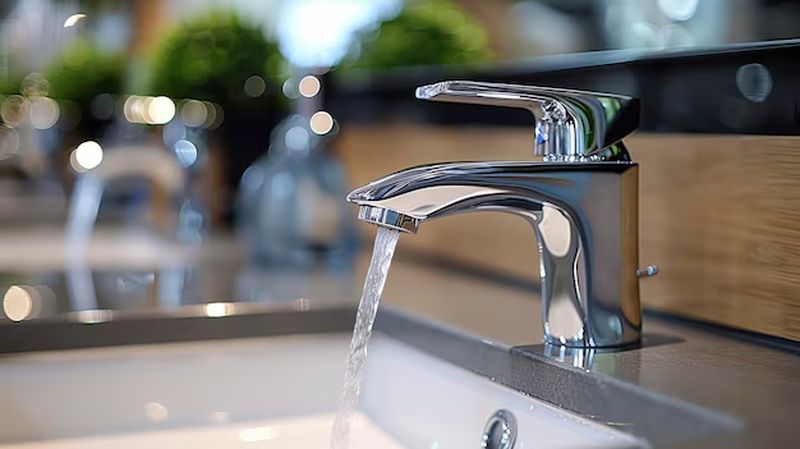
Bundle Projects (e.g., Replace Sink or Toilet Simultaneously)
If you're thinking about other bathroom updates, like replacing the sink or toilet, consider doing them at the same time as your faucet replacement. Bundling projects can save you on labor costs because the plumber is already there, and they can handle multiple tasks in one visit.
Negotiate Labor Rates or Seek Seasonal Discounts
Don't be afraid to negotiate labor rates with your plumber or contractor. Many are willing to offer discounts, especially if you're bundling projects or hiring them during a slower season.
Prepare the Sink Area
Before the plumber arrives, take some time to prepare the sink area. Clear out any items under the sink, like cleaning supplies or toiletries, to give the plumber easy access. This small step can save time—and since plumbers often charge by the hour, less time means lower labor costs.
If you're handy, you can even remove the old faucet yourself, though we recommend leaving the installation to the pros to avoid mistakes.
Keep the Existing Configuration
If possible, stick with a faucet that matches your sink's existing configuration. For example, if your sink has three holes, choose a faucet designed for three holes (like a center set or widespread faucet).
Switching to a different style, like a single-hole faucet, might require modifications to the sink or countertop, which can add $100 to $200 in extra labor and materials.
Ask About Recycling Credits
Some plumbing companies or local recycling programs offer credits for old faucets, especially if they're made of valuable materials like brass or stainless steel. While it might not be a huge amount, you could get $5 to $20 back for recycling your old faucet.
Be sure to ask your plumber if they participate in any recycling programs or if they can point you to a local facility that does.
DIY vs. Professional Replacement: Which Saves You More?
When it's time to replace your bathroom faucet, you face a choice: tackle the job yourself (DIY) or hire a professional. In this section, we'll break down the costs of DIY and professional replacement and explore when each might save you more. Let's get started!
Cost Factor |
DIY Replacement |
Professional Replacement |
|---|---|---|
Faucet Cost |
$70 - $250 |
$70 - $250 (or +20-30% markup if provided by plumber) |
Tools Needed |
$50 (basic tools), $20 - $50 for basin wrench |
N/A |
Labor Costs |
$0 (your time) |
$130 - $400 (avg. $350) |
Potential Mistakes |
$100 - $200+ if a plumber is needed for repairs |
Included in service |
When Is DIY a Better Choice?
DIY shines in these situations:
- You're replacing a simple faucet (e.g., a standard deck-mounted model) with no plumbing complications.
- You're handy with tools and can follow instructions—online tutorials abound.
- You have time to spare and enjoy a challenge.
When to Call a Pro?
Go professional if:
- Your home has older plumbing, like corroded pipes, that might need extra work.
- You're installing a complex faucet (e.g., wall-mounted or smart models) requiring advanced skills.
- You lack the time, tools, or confidence for DIY.
So, which saves you more? It depends. DIY can be cheaper—potentially $120 to $350 versus $200 to $650 for a pro—if you've got the skills and a straightforward job.
But if you're dealing with old plumbing, a tricky faucet, or just don't have the time, a professional's expertise and warranty might save you from bigger bathroom faucet replacement expenses later.
Is it Cheaper to Repair a Bathroom Faucet than Replacing?
When your bathroom faucet starts dripping or looking worn out, you might ask yourself: Is it cheaper to fix it or just get a new one? It's a great question, and the answer depends on a few things like the problem, how old your faucet is, and what you're willing to spend.
What Does It Cost to Repair a Faucet?
Fixing a bathroom faucet means tackling specific issues—like leaks or low water flow. The cost depends on what's broken and whether you hire someone or do it yourself. Here's what you might expect:
- Small fixes (like washers or O-rings): These tiny parts often cause leaks. Replacing them costs $5 to $20 if you do it yourself. Add $50 to $100 if a plumber does it.
- Bigger fixes (like a cartridge or valve): If the insides of the faucet are the problem, parts cost $20 to $50, and labor might add $100 to $200.
- Cleaning buildup: Sometimes, mineral gunk slows the water. You can clean it with vinegar for free or cheap.
What Does It Cost to Replace a Faucet?
Replacing a faucet means buying a new one and getting it installed. Here's the breakdown:
- New faucet price: A basic bathroom faucet costs $70 to $250, depending on how fancy you want it.
- Installation cost: Hiring a pro to put it in runs $130 to $400, averaging around $350. Doing it yourself skips this cost, but it's tricky if you're new to plumbing.
Repair vs. Replacement: A Quick Look
Here's a simple cost comparison:
- Repair: $50 to $150 for small fixes, up to $200 for bigger ones.
- Replacement: $200 to $650, including the faucet and install.
What's the Cheaper Choice?
Here's the bottom line: Repairing your bathroom faucet is usually cheaper upfront, especially for little problems. But if it's old, falling apart, or you want an upgrade, replacing it could save you more down the road.
FAQs
Here are some of the most common questions people ask about replacing a bathroom faucet.
Q: Should I replace my bathroom faucet?
A: You should think about replacing your bathroom faucet if it's leaking, looks old and worn, or isn't working as well as it used to. Look for signs like constant drips, low water pressure, or visible damage such as rust or cracks.
A new faucet can fix these problems, give your bathroom a fresh look, and even save water with modern features, potentially lowering your bills.
Q: What is the life expectancy of a faucet?
A: A bathroom faucet typically lasts 10 to 15 years, depending on its quality and how much you use it. High-end faucets made from materials like brass or stainless steel might last longer, while heavy use or hard water (which leaves mineral buildup) can wear them out faster.
Q: How do I know which bathroom faucet to buy?
A: Picking the right faucet starts with checking your sink's setup—count the number of holes (usually one, three, or four). Next, choose a style you like: a single-handle faucet for easy use or a double-handle for a traditional vibe.
Match the finish (like chrome, brushed nickel, or matte black) to your bathroom's style. You might also want extras like water-saving features or touchless operation.
Q: How long does it take a plumber to install a faucet?
A: A plumber can usually install a bathroom faucet in 1 to 2 hours. The exact time depends on the job's complexity. For instance, old pipes that need fixing or a wall-mounted faucet might add some time.
Q: How can I remove a bathroom faucet that is stuck in place?
A: Turn off the water supply to prevent messes.
- Use a wrench to loosen the nuts under the sink that hold the faucet in place.
- If they won't budge, apply penetrating oil(like WD-40), wait a few minutes, and try again—it helps break up rust or corrosion.
- Gently wiggle the faucet to pull it free.
- If it's still stuck, a basin wrench might give you the extra grip you need.
Conclusion: Key Takeaways for Bathroom Faucet Replacement Costs
Replacing a bathroom faucet is a great way to spruce up your space, but understanding the cost of replacing a bathroom faucet can help you plan better.
Remember to carry out 5 steps to plan your faucet replacement. Things like the faucet's type, its material, and unexpected plumbing hiccups—like corroded pipes—can bump things up.
Luckily, you can save some cash. Try buying your own faucet, bundling it with other repairs, or even negotiating labor rates. Feeling handy? DIY might trim bathroom faucet replacement costs, but for complex jobs, a pro is worth it.
That's where Jabra Sanitary shines. We offer competitive pricing, high-quality faucets, and service you can trust. Unlike big chains, we check for hidden issues upfront, saving you from surprises down the road.







